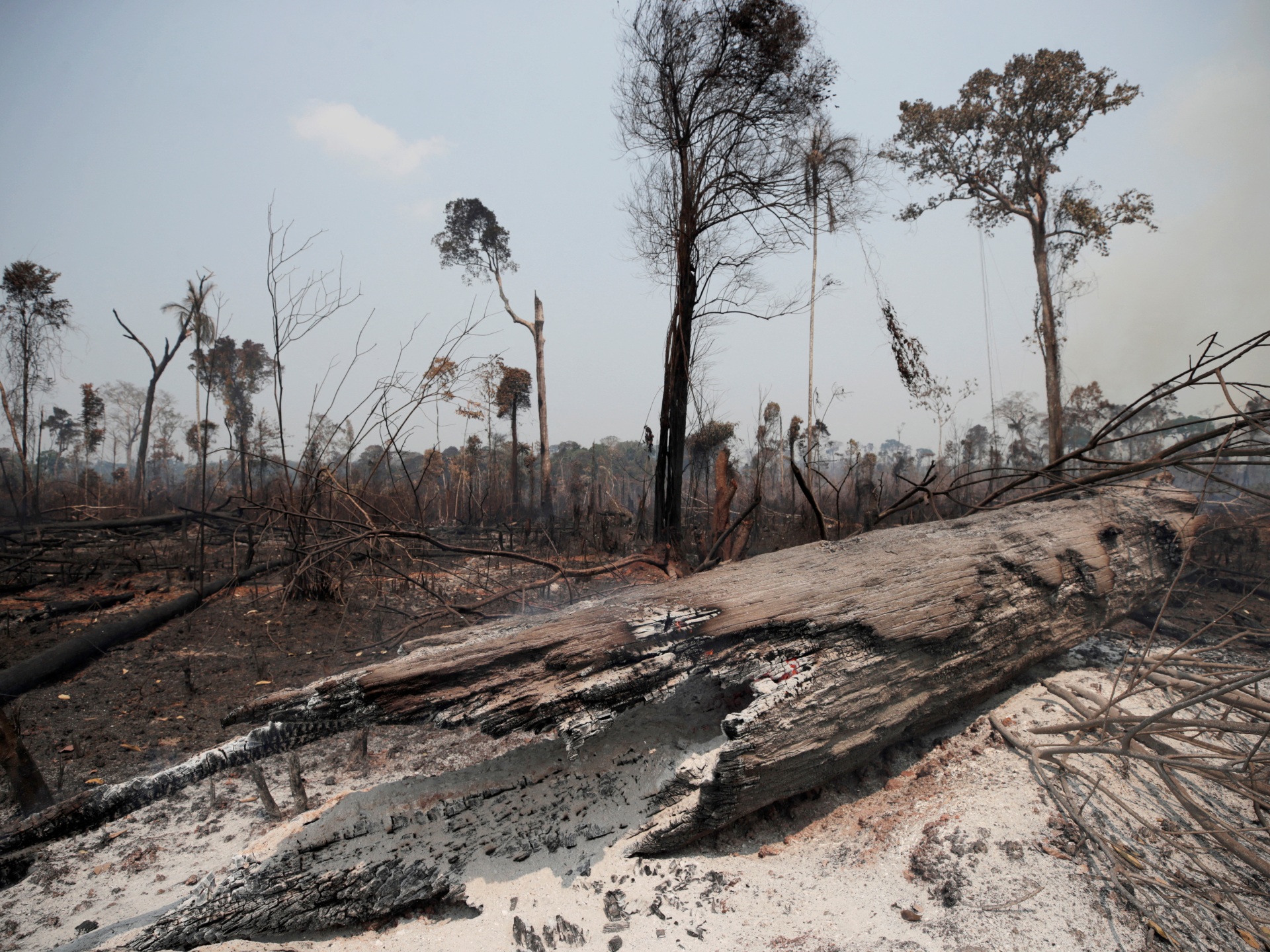Environmentalist says outgoing President Jair Bolsonaro handing his successor, Lula da Silva, ‘an Amazon in flames’.
Deforestation in the Brazilian Amazon has fallen in the 12 months through July, new government data showed, as incoming President Luiz Inacio Lula da Silva seeks to restore protection for the vital rainforest.
National space agency (INPE) data released on Wednesday showed 11,568sq km (4,466sq miles) of forest cover was destroyed in the Brazilian Amazon from August 2021 to July 2022 – an area larger than Qatar.
That was an 11 percent drop from the same period a year earlier, when deforestation hit a 15-year high under far-right Brazilian President Jair Bolsonaro.
“It’s better to have a lower number than a higher number, but it’s still a very high number – the second highest in 13 years,” said Marcio Astrini, head of the Climate Observatory, an environmental advocacy group.
Wednesday’s data closed out four years of what environmentalists call disastrous management of the Amazon under Bolsonaro, who was accused of weakening environmental and Indigenous protection agencies in favour of agri-business and mining interests.
Under the former army captain, average annual deforestation rose by 59.5 percent from the previous four years, and by 75.5 percent from the previous decade, according to INPE figures.
“The Bolsonaro government was a forest-destroying machine … The only good news is that it’s about to end,” Astrini said in a statement. “The devastation remains out of control. Jair Bolsonaro will hand his successor a filthy legacy of surging deforestation and an Amazon in flames.”
Lula, a left-wing leader who won tightly fought elections last month, has promised to work towards zero deforestation when he takes office on January 1.
“Brazil is ready to resume its leading role in the fight against the climate crisis,” he said shortly after being declared the winner of the October 30 presidential run-off.
Lula, who previously served as Brazil’s president from 2003 to 2010, also attended the COP27 climate summit in Egypt earlier this month, where he told hundreds in attendance that “Brazil is back in the world”.
Brazilian Senator-elect Flavio Dino, who is acting as public security chief in Lula’s transition team, told the Reuters news agency on Wednesday that the incoming administration would create a new federal police unit focused on environmental crimes.
Dino said the proposed unit would take a broad view of crimes in the Amazon, where deforestation, illegal mining, drug trafficking, money laundering and gang violence are often interlinked.
“There is now a specific complexity of environmental crimes, in which there is, a kind of combo of crimes in the Amazon. We no longer have isolated environmental crimes,” he told the news agency.
“You have this sophistication and there is a transnationality, because it involves other countries in the Amazon. So the idea is a specialised unit for greater efficiency and greater articulation with neighbouring countries.”
Under Bolsonaro, Indigenous leaders had raised alarm about the threats their communities face in the Brazilian Amazon, especially in areas with little government oversight that farmers, miners and poachers are seeking to control and exploit.
The Indigenous Missionary Council recorded 305 cases of “invasions, illegal exploitation of resources and damage to property” on Indigenous territories last year that affected 226 Indigenous lands in 22 Brazilian states.
That was up from 109 such incidents in 2018, the year before Bolsonaro took office – a 180 percent increase.
Carbon Brief, a UK-based climate website, said in a report in September that a Lula election victory could see deforestation drop by 89 percent in the Brazilian Amazon over the next decade and would prevent the destruction of 75,960sq km (29,328sq miles) of rainforest by 2030.
Still, Lula could face tough political opposition in areas where Amazon deforestation is happening, and he also must deal with the difficulty of policing such vast, often remote areas.
